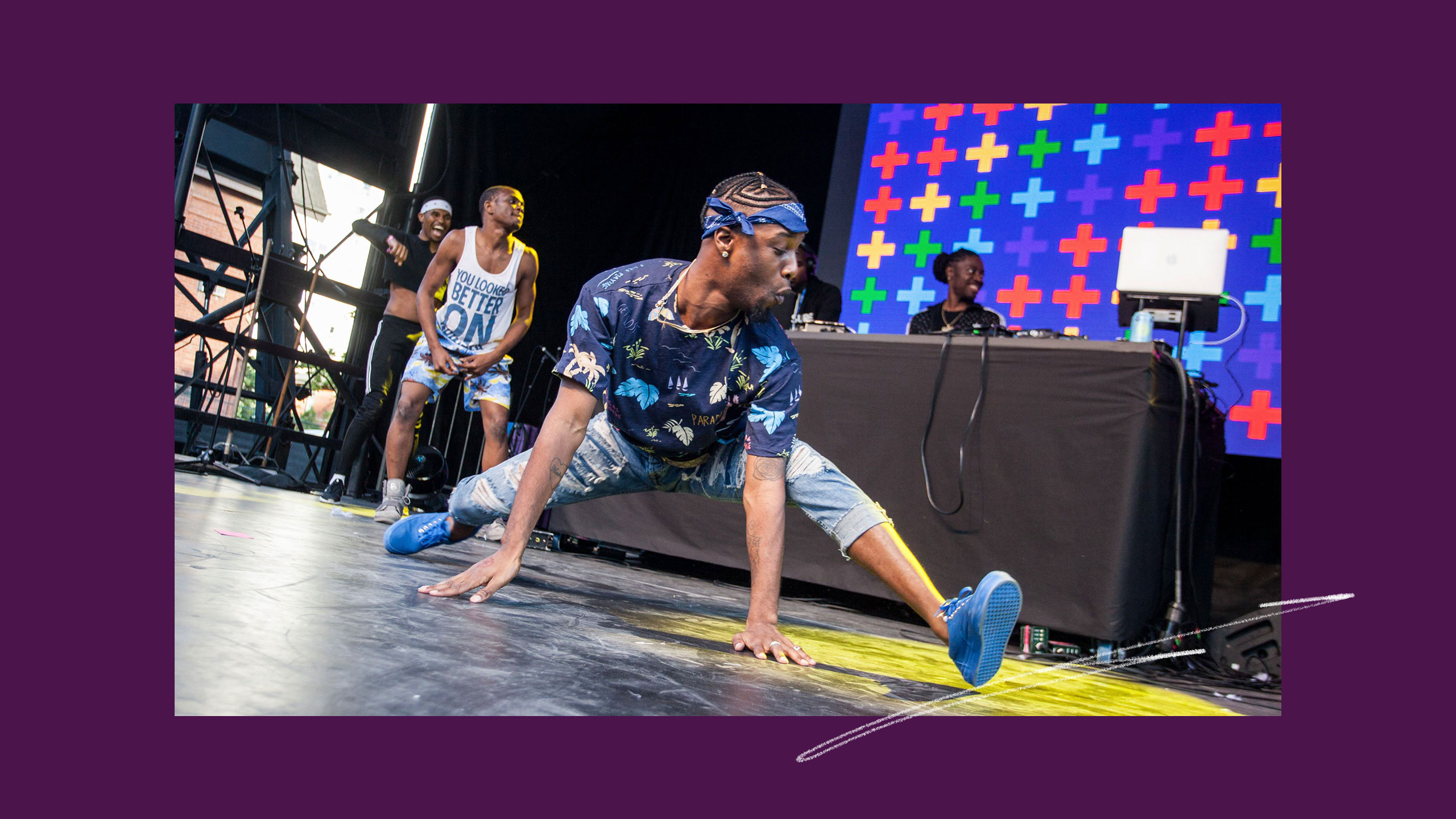The first-ever in-person Global Black Pride will be held in Toronto this summer, organizers announced last week.
The Global Black Pride festival was founded in 2020 amid the international reckoning for racial justice following the murder of Black Americans, including George Floyd and Breonna Taylor, by police. Global Black Pride, which was founded to celebrate Black contributions to the past, present and future of the global LGBTQ2S+ movement, has until this year been an entirely virtual organization due to the pandemic. The first two festivals drew millions of streamers to its day-long online events.
This year’s event will be presented in a hybrid format, including digital and in-person performances, celebration spaces and a human rights conference. Running from July 28 through July 31, 2022, it will be organized in partnership with Blackness Yes!, a group that organizes Pride events and gathers health care and community resources for Black LGBTQ2S+ people in Toronto.
Global Black Pride will coincide with Toronto’s Caribbean Caribana festival and Canada’s Emancipation Day, and will end with the day-long Blockobana celebration, which Blackness Yes! has been hosting in the city for many years. At the Blockabana music and arts festival, “LGBTQI+ African, Black and Caribbean people celebrate culture free from homophobia, transphobia and anti-black racism,” according to a Global Black Pride press release.
“Black Pride is a political act whether we’re protesting or dancing,” said Craig Dominic, a programmer with Blackness Yes! who is working with Global Black Pride to produce the event, in a statement.
“We aim to have moments of celebration, but also of commemoration, calls to action, and centring the ongoing work for equity and justice for Black LGBTQI+ people across the globe,” added Gerald Garth, head of events and communications for Global Black Pride.
“We are a global community of vibrant, strong people, and we need to celebrate that.”
The idea of Pride festivals specifically celebrating Black LGBTQ2S+ people isn’t new. The Center for Black Equity, a non-profit dedicated to building international Black queer community, points to the 1991 Black Pride festival in Washington, D.C., as one of the earliest Black Pride festivals. And Black queer and trans people have always been central to queer liberation: the Stonewall Uprising in New York in 1969 was organized in large part by two Black trans women, Miss Major and Marsha P. Johnson, and a Black butch lesbian, Stormé DeLarverie.
According to the Center for Black Equity’s tracking data, there are now at least 21 Black Pride celebrations globally.
The contributions of Black LGBTQ2S+ people have, however, historically been underrecognized within the broader movement. Global Black Pride sets out to change that, according to its co-founder and president, Micheal Ighodaro. “People really do want to see themselves on TV or see themselves be celebrated, people that look like them,” he recently told the Bay Area Reporter.
A gay Black Nigerian man who has lived in the U.S. for a decade, Ighodaro wants to see Black Pride be considered more than just a side event in the story of LGBTQ2S+ rights.
The movement for Black LGBTQ2S+ equality is not identical to whatever is popular in white, gay activist circles at any given moment, as Ighodaro told Gay City News. Right now, he is focused on issues such as the global decriminalization of same-sex relationships and police brutality, not same-sex marriage or the right to serve openly in the military. Black queer issues have not always gained white majority support, he said, but, “Black people are part of this movement.”
While this will be a global event, its location in Toronto is also significant. Black activists have long been at the forefront of Toronto’s queer movement, particularly during the 1981 bathhouse protests. On Feb. 5, 1981, about 200 police officers raided Toronto bathhouses and arrested hundreds of men on charges of “indecent acts,” sparking waves of protest against the brutal treatment of LGBTQ2S+ people by police, which had spanned decades.
The first Toronto Pride Day was held the same year as the bathhouse protests, without backing from the city.
Organizers of Global Black Pride hope to honour that legacy while also building solidarity and celebration among Black queer and trans people globally. “It was really important for us to meet in person more as a celebration, not only of our culture and our diversity, but also to celebrate our Blackness and our unity … as Black global citizens,” the group’s vice president, Rikki Nathanson, told the Bay Area Reporter.
“We are a global community of vibrant, strong people, and we need to celebrate that,” she added. “Celebrate our diversity, our culture, our fabulosity.”


 Why you can trust Xtra
Why you can trust Xtra


